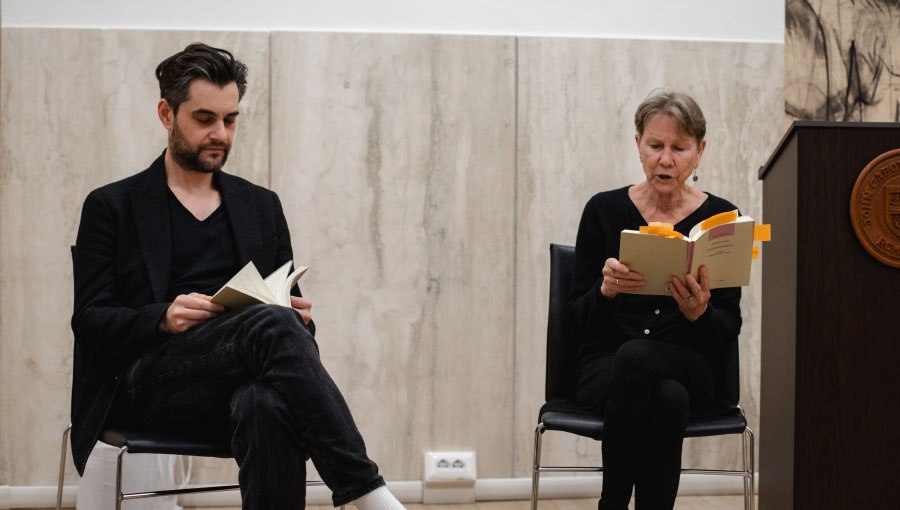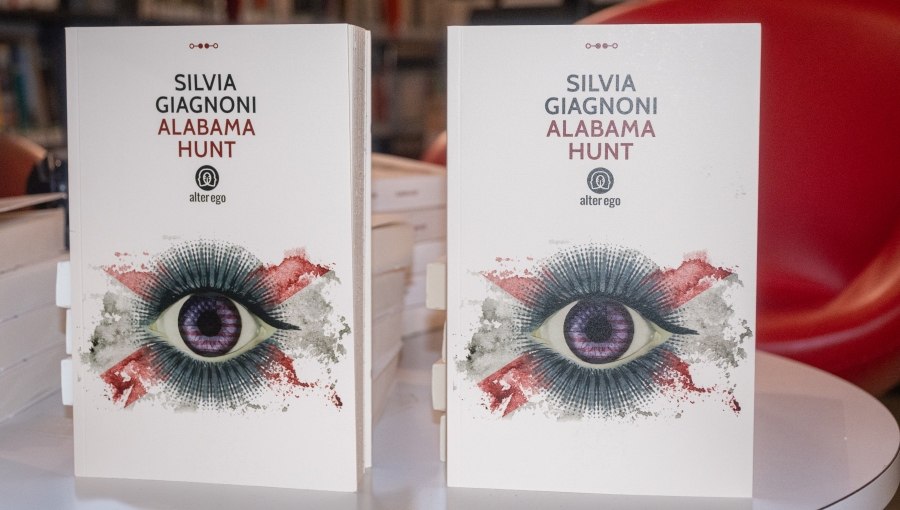“Raising Questions:” Meet Dolen Perkins-Valdez, JCU’s Writer in Residence
Imagine you are a young female slave taken by your master to a vacation home, close to a territory where you could be free. Wouldn’t you try to escape? This is the question author Dolen Perkins-Valdez raises in Wench, a historical novel that takes place in the American south during the mid-nineteenth century.
The JCU Institute for Creative Writing and Literary Translation welcomed 2018 Writer in Residence Dolen Perkins-Valdez for a reading from her best-selling novels Wench and Balm on June 18th.
Perkins-Valdez is currently an Assistant Professor in the literature department at American University in Washington, DC. She was inspired to write historical fiction while a graduate student in the Ph.D. program at George Washington University where she studied nineteenth-century African American literature.
“The novel was born out of curiosity about a resort in Ohio, where masters would take their enslaved black mistresses every summer for vacation. Ohio was a free state at the time, so I wondered why the slave women did not attempt to escape,” explained Prof. Perkins-Valdez before proceeding to read an excerpt from the novel.
Published in 2010, Wench revolves around three black women, Lizzie, Reenie, and Sweet, who are regulars at the resort, building strong friendships over the years. When a fourth girl, Mawu, comes along, plans about fleeing begin to take shape. Running away means leaving everything behind and, for some, also abandoning the emotional and psychological bonds to their masters. Through a string of tragedies, the four women learn that triumph and dehumanization are inseparable and that love exists even in the most inhuman, brutal circumstances – all while they witness the end of an era.
“Many slave women suffered from Stockholm syndrome: the psychological alliance that captives develop with their captors as a strategy for survival. This made it difficult for the women to escape from the ties that bound them to their masters,” said Prof. Perkins-Valdez. In this broken system, even relationships between slaves were dysfunctional. The novel also explores the complex relationship between black female slaves and white women; the bond of motherhood that they shared was another one of the reasons that slaves did not run away.
Since the book has an open ending, many readers asked Prof. Perkins-Valdez about a sequel, and as the author admitted, she always wanted to write a Civil War novel. Her next book Balm, however, turned out to be a post-Civil War novel, whose events span from 1866 to 1871, when people tried to rebuild their lives after the Civil War.
The three main characters are caught up in an unexpected battle for survival in a community desperate to lay the pain of the past to rest and define their own future. Madge, Sadie, and Hemp have each left Tennessee for Chicago in search of a new life during one of the most critical periods in American history.
One of the characters, Sadie, can commune with the dead. Prof. Perkins-Valdez explained that Spiritualism was, in fact, a popular movement at that time, since many hoped to talk to relatives who had died during the war. Moreover, spiritual sessions held behind closed doors gave women the opportunity to talk about subjects that were not considered suitable for them, like science. Many spiritualists were women, and they supported causes such as the abolition of slavery and women’s rights.
When asked about her experience teaching and living in Rome, Prof. Perkins-Valdez said, “Both my novels are historical novels, so I feel like all of my senses are awakened by living in a place so full of history. I really just want to be listening and watching people, because that too is part of being a writer.”
The author concluded by discussing the generational dysfunction that families whose history is marked by such terrible events such as slavery, war, genocide, etc. and survived, have to deal with. According to Prof. Perkins-Valdez, the role of the novelist in addressing these issues is “not to answer questions, but to ask them.”
Prof. Dolen Perkins-Valdez will be teaching EN 211 The Short Story during the Summer II session at John Cabot University.







